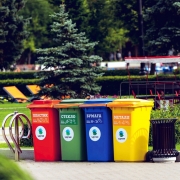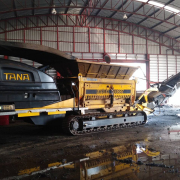EP ITRE Vote on NZIA Recognises the Full Potential of Net-Zero Technologies and Unlocks the Contributions of the Waste-to-Energy Sector
Today, the European Parliament’s Industry, Research and Energy Committee (ITRE) adopted its position on the Net Zero Industry Act (NZIA) proposal.
ESWET greatly welcomes ITRE’s approach to propose a stand-alone list of net-zero technologies eligible for EU funding and regulatory perks. Fast-tracking permitting procedures will be one of the key enablers in ensuring that the EU succeeds in scaling up the manufacturing of clean and innovative technologies in the EU.
ESWET is also thrilled to see that the ITRE list of net-zero technologies compromises all necessary technologies to strengthen the resilience of the EU economy, including the full spectrum of Carbon Capture Utilisation and Storage, electrolyser and fuel cell technologies, hydrogen, SAF, and biomethane-related technologies, energy efficiency technologies, as well as technologies pertaining to material (i.e., recycling) and heat recovery.
- Storing CO2 and reusing the captured carbon as an alternative feedstock to produce fuels, chemicals, and materials replacing fossil fuels can extensively reduce net CO2 emissions and thus mitigate global climate change. By confirming the target of achieving an annual injection capacity of at least 50 million tonnes of CO2 by 2023, the ITRE Committee has paved the way to the NZE level. With regards to WtE, as stated by the IPCC in 2022, the implementation of CCUS can “enable waste to be a net zero or even net negative emissions energy source”, with the potential to capture “about 60 to 70 million tons of carbon dioxide annually” in Europe.
- Material recovery technologies can help secure raw materials without over-relying on third countries, a major environmental and geopolitical challenge for the EU. The full recovery of metals from Waste Incineration Bottom Ash (IBA) is currently recognised as recycling at the EU level and represents a potential market of approx. 2 billion EUR. In addition, material recovery from WtE processes prevents the energy-intensive extraction and manufacturing of virgin raw materials, with a potential to save approx. 2,000 kg of CO2eq. emissions for each tonne of metal recycled from IBA.
“The inclusion of recycling technologies in the NZIA list is extremely needed to fully unlock their potential and it is also the required step to move towards a more harmonised European legislative framework for material recovery” said Antonella Del Figliolo, Policy Officer at ESWET.
- Heat recovery from WtE processes can boost the supply of affordable, efficient, and secure heat, and the EU must take advantage of this important source of energy. In fact, around 10% of Europe’s energy provided to District Heating and Cooling networks comes from WtE, and in 2019, WtE plants supplied almost 17 million Europeans with heat. What is more, the recognition of heat recovery technologies as strategic net zero in the NZIA can maximise innovation and investments in the field, resulting in an additional acceleration of the EU efforts to mitigate climate change.
”The next step is for the European Parliament and the Council to adopt the proposals in the ITRE report in their respective positions – said Patrick Clerens, ESWET Secretary-General, highlighting that – the ITRE position can in fact help the EU achieve net zero emissions and lead the fight against climate change”.
Source: ESWET (Brussels, October, 25, 2023)





